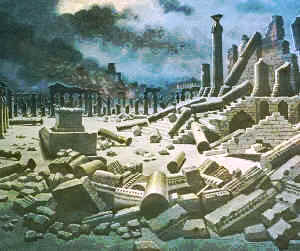From the beginning, the Watchtower has said:
"We have not the gift of prophecy." - January 1883, page 425.
"Nor would we have our writings reverenced or regarded as infallible." - December 15, 1896, page 306.
"[the fact that some have Jehovah's spirit] does not mean those now serving as Jehovah's witnesses are inspired. It does not mean that the writings in this magazine, The Watchtower, are inspired and infallible and without mistakes." - May 15, 1947, page 157.
"The Watchtower does not claim to be inspired in its utterances, nor is it dogmatic." - August 15, 1950, page 263.
"The brothers preparing these publications are not infallible. Their writings are not inspired as are those of Paul and the other Bible writers. (2 Tim. 3:16) And so, at times, it has been necessary, as understanding became clearer, to correct views. (Prov. 4:18)" - February 15, 1981, page 19.
No, as the preface to every Watchtower magazine for the year 1972 (including, of course, the April 1, 1972 issue which had the article, "They Shall Know That a Prophet Was Among Them") says:
No, `The Watchtower' is NO INSPIRED PROPHET, but it follows and explains a Book of prophecy ....— Which Book? The Sacred Bible of the Holy Scriptures, written by inspiration in the name of the creator of heaven and earth, the only living and true God.
---------------------------------------------------------------------------------
BACK TO HOME PAGE INDEX
"We have not the gift of prophecy." - January 1883, page 425.
"Nor would we have our writings reverenced or regarded as infallible." - December 15, 1896, page 306.
"[the fact that some have Jehovah's spirit] does not mean those now serving as Jehovah's witnesses are inspired. It does not mean that the writings in this magazine, The Watchtower, are inspired and infallible and without mistakes." - May 15, 1947, page 157.
"The Watchtower does not claim to be inspired in its utterances, nor is it dogmatic." - August 15, 1950, page 263.
"The brothers preparing these publications are not infallible. Their writings are not inspired as are those of Paul and the other Bible writers. (2 Tim. 3:16) And so, at times, it has been necessary, as understanding became clearer, to correct views. (Prov. 4:18)" - February 15, 1981, page 19.
No, as the preface to every Watchtower magazine for the year 1972 (including, of course, the April 1, 1972 issue which had the article, "They Shall Know That a Prophet Was Among Them") says:
No, `The Watchtower' is NO INSPIRED PROPHET, but it follows and explains a Book of prophecy ....— Which Book? The Sacred Bible of the Holy Scriptures, written by inspiration in the name of the creator of heaven and earth, the only living and true God.
---------------------------------------------------------------------------------
BACK TO HOME PAGE INDEX







.jpg)
.jpg)


